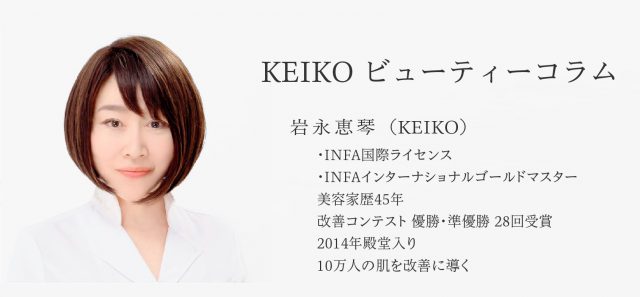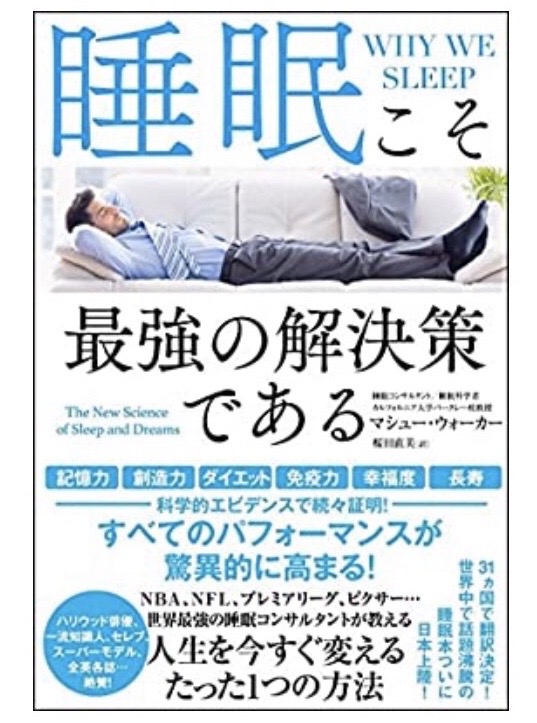
KEIKO Beauty column by Keiko Iwanaga, a beautician with over 40 years of experience. Collaboration with Dr.Oike opens a new frontier of beauty.
1-23. Sleep and Aging(日本語)
When we’re busy everyday, we tend to work in a 24-hour pattern of life.
Taking the last train in the time table, having dinner in the middle of the night, having a chronic lack of sleep, and even staying up all night. And we try to sleep long hours on off days to recover the lost sleeping time.
This disrupts our biological clock.
In this article, I want to talk about how important getting enough sleep is for our lives.
I found a very interesting book by a neuroscientist, Dr.Matt Walker.
Testosterone (male hormone) levels in men who sleep only 4-5 hours each day are same as over 10 years old men.
This is not only for men, but women as well.
If the lack of sleep is continued, the hormone level is dropped down,
and the aging process accelerates by 10 years, he says.
In learning, too, sleep is important in order for the brain to prepare for learning, and then to remember and retain what it has learned.
If you study while sleep deprived, your brain can’t remember anything new.
Using a group of people who got 8 hours of full sleep and a group of people who were sleep deprived, the learning ability of the group was measured in terms of how well they studied.
The group that was sleep deprived had a whopping 40% lower result than the group that got enough sleep.
There is a place in the brain called the hippocampus, which is like an inbox for information, but when you don’t get enough sleep, the inbox is closed and unable to receive new information.
As we get older, our memory declines.
It also becomes harder and harder to get a good and deep sleep.
The inability to get a good sleep is also a factor in cognitive decline and memory loss.
The older you get, the more important it seems to be to get enough sleep.
Also, academic study shows that the number of heart attacks increases by 24% the day after a day when people get an hour less sleep than usual.
Conversely, the day after a day with one more hour of sleep than usual, the number of heart attacks is 21% lower.
The same thing happens with car accidents and suicide rates.
Car accidents and suicides increase when we sleep less, and accidents and suicides decrease when we sleep enough.
The body’s immune system also has an effect on the body’s natural killer cells (the cell that has defense force to cancer cells and viruses), but they don’t work as well when you don’t get enough sleep.
There is an academic study to see what happens to your natural killer cells when you get four hours less sleep than usual on just one day.
As a result, the natural killer cell activity was reduced by a whopping 70%, not 10% or 20%.
Lack of sleep and the incidence of cancer are linked.
The ones currently known to be causally linked are colon, prostate and breast cancer.
Because cancer incidence and sleep deprivation are clearly linked, the WHO classify the jobs with night shifts as carcinogenic because it disrupts the rhythm of sleep.
If the less sleep causes the higher risk of death and the shorter life , we need to be more aware of the importance of a good, deep sleep.
To be continued in the next article
****************************************************
If you are interested, please check it.

****************************************************



コメントを残す